Navigating the world of smoothies can be a delightful journey, especially when you're experimenting with different flavors and textures. One crucial component that can make or break your smoothie experience is the choice of milk. With so many options available, finding the best milk for smoothies can be a game-changer, ensuring that every sip is both delicious and nutritious.
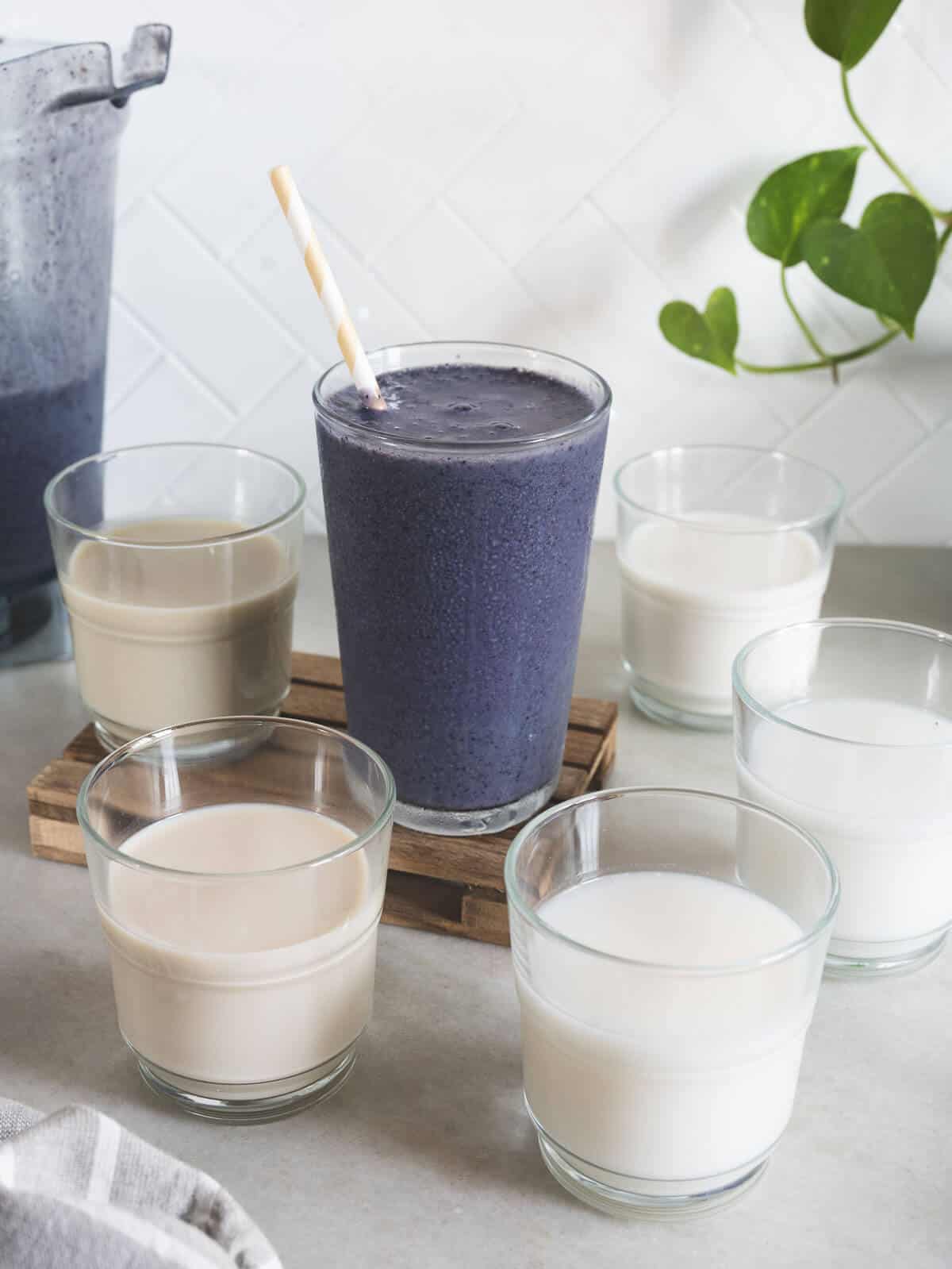
Smoothies have become a staple for many, offering a refreshing way to consume various nutrients in one go. When crafting the perfect blend, choosing the best liquid for smoothies is crucial.
With the plethora of milk options available today, which also contribute to the fiber in milk, it can be a tad overwhelming to pick the right smoothie liquid. Whether you're a seasoned smoothie aficionado or a newbie looking to blend your first concoction, the milk or liquid you choose can significantly influence your drink's taste, texture, and nutritional value.
With the rise of plant-based diets, dairy-free milk options have soared in popularity, each bringing a unique flavor profile and health benefits. Let's dive deep into the world of milks to discover which one is the perfect match for your next smoothie creation.
Jump to:
Video
What Liquid to Put in Smoothies?
When it comes to crafting the perfect smoothie, the choice of liquid plays a pivotal role. While many opt for various milk options, there's a whole world of liquids to explore. Asking yourself, best milk substitute for smoothies?
Beyond milk, options like coconut water and juices can be an excellent addition, infusing your smoothie with natural sweetness and tang.
If you're searching for the best juice for smoothies, consider options like orange juice for a citrusy kick, apple juice for a mild sweetness, or even pineapple fruit juice for a tropical flair. Remember, the key is to balance the flavors and ensure the liquid complements the other ingredients in your smoothie.
Comparison Chart: Different Kinds of Milk for Smoothies
| Type of Milk | Dairy or Dairy Free? | Calories per 1 cup* | Protein per Serving (g)** |
|---|---|---|---|
| Regular dairy milk (2%) | Dairy | 125 | 8 |
| Nut milk | Dairy-free | 60 | 1 |
| Soy milk | Dairy-free | 100 | 7 |
| Rice milk | Dairy-free | 140 | 1 |
| Oat milk | Dairy-free | 90 | 4 |
| Seed milk | Dairy-free | 60 | 2 |
| Coconut milk | Dairy-free | 80 | 1 |
| Almond milk | Dairy-free | 60 | 1 |
| Cashew milk (lowest cal milk) | Dairy-free | 25 | 0.5 |
| Hazelnut milk | Dairy free | 70 | 1 |
*Calories listed may differ based on brand and sweetened vs unsweetened milk.
**Protein content can vary based on the brand and specific milk formulation.
As always, it's essential to consider the calorie and protein content and the unique flavors and textures each milk brings to your smoothies.
1. Regular Dairy Milk (2%):
While a traditional choice for many, we encourage exploring plant-based alternatives. Regular dairy milk has a creamy texture that can make smoothies rich. However, it raises concerns over animal welfare, environmental issues linked to dairy farming, and potential health concerns. It generally pairs well with classic fruits like strawberries, bananas, and blueberries.
But let's talk about plant-based milk alternatives.
2. Almond Milk: The Nutty Delight
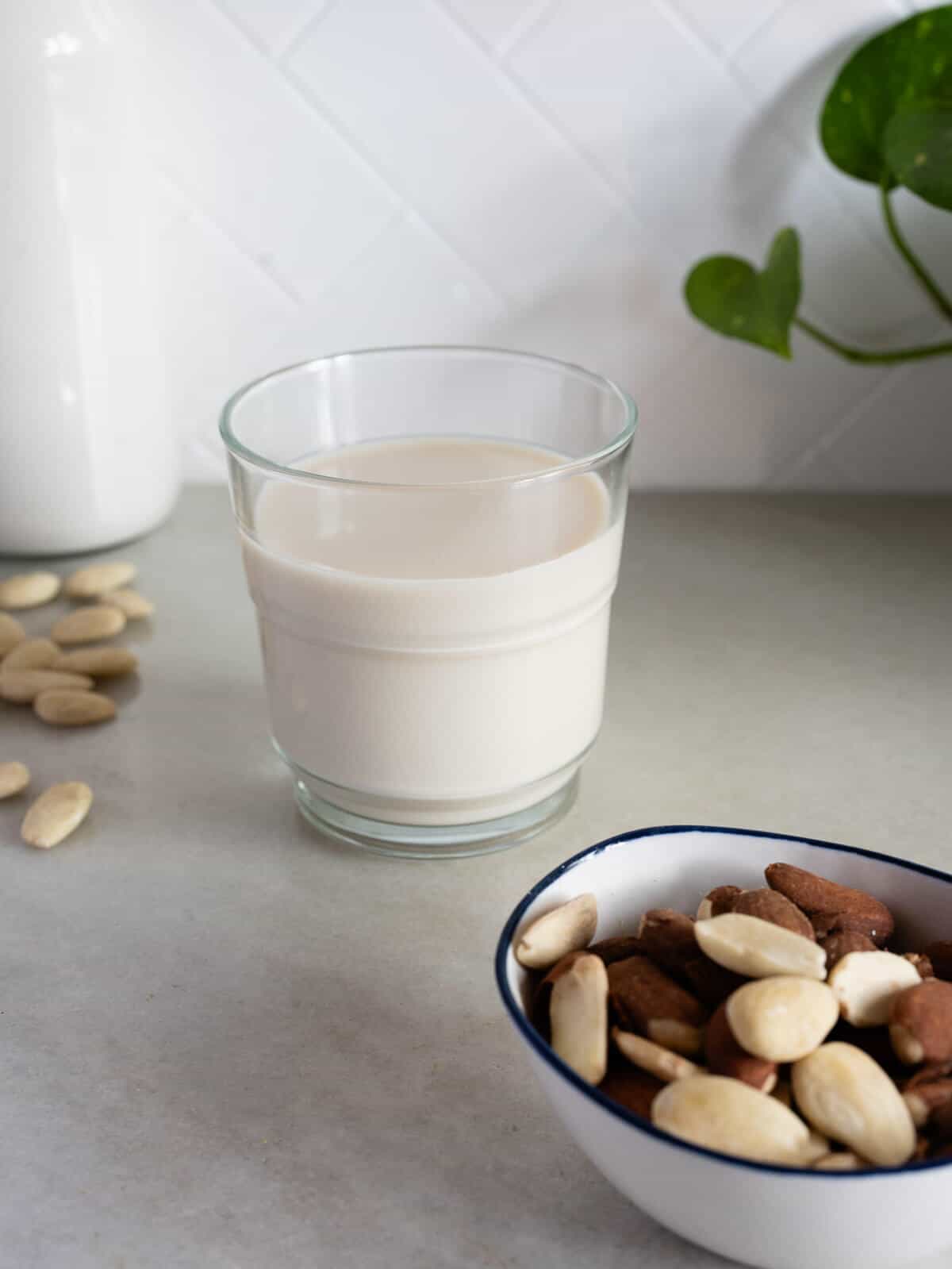
Unsweetened Almond milk is made by blending almonds with water and then straining the mixture to remove the solids. It's a low-calorie option with a subtle nutty flavor. Rich in vitamin E, almond milk is often fortified with calcium and vitamin D.
You can also use sweetened almond milk to reduce the amount of sweeteners on your smoothies or simply opt for wholesome sweeteners like homemade date paste.
With a light and slightly nutty flavor, almond milk adds a subtle richness to smoothies. Its texture is less creamy than dairy milk, making it perfect for those who prefer a lighter consistency. Almond milk pairs beautifully with berries, chocolate, and even green veggies like spinach to make your green smoothies..
Plus, have you tried our chocolate almond milk? It's a game-changer!
Read on: Love berry smoothies? Try our Blackberry Strawberry Smoothie and and Almond Milk Berry Smoothie
3. Oat Milk: Creamy and Dreamy
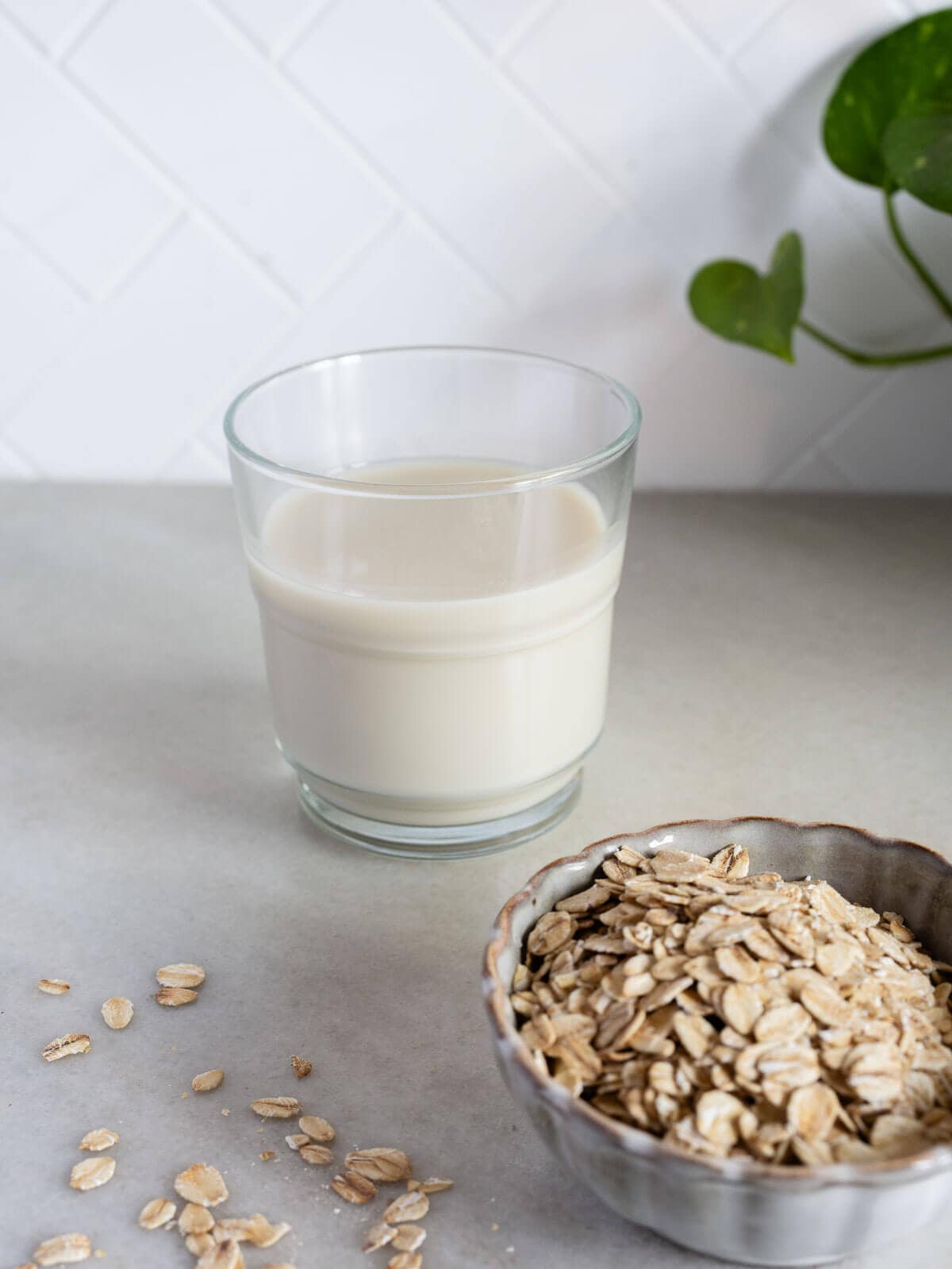
Produced by blending oats with water and then straining the mixture, oat milk boasts a creamy texture and a slightly sweet taste. It's a good source of fiber, and many brands fortify their oat milk with vitamins and minerals.
Oat milk, the best non-dairy milk for smoothies, stands out for its naturally sweet, sustainable, and creamy texture. It's especially great for thickening up your smoothies, making them feel more substantial. Its mild flavor complements fruits like mangoes, and peaches, and even pairs well with cocoa or chocolate add-ins.
Read on: we love using this milk on our oat milk smoothie with PB
4. Coconut Milk: Tropical Vibes Incoming
Derived from the grated meat of a coconut, canned coconut milk is rich and creamy with a distinctly tropical flavor. It is high in medium-chain triglycerides (MCTs), believed to have several health benefits.
Coconut milk's rich and creamy consistency brings a tropical flair to any smoothie. Its distinct coconut flavor pairs exceptionally well with pineapple, mango, banana fruits, and tropical smoothies.
Add a splash of coconut milk to a chocolate smoothie for a Mounds bar-like treat.
Read on: Pineapple Coconut Smoothie or an exquisite Horchata
5. Soy Milk: Protein-Packed Goodness

Soy milk, the healthiest milk; is made by soaking, grinding, and boiling soybeans. It's a great source of protein among plant-based milks and is often fortified with vitamins and minerals, making it a nutritious choice for smoothies.
We use this milk and good-quality organic protein powder for our pre-workout and recovery smoothies.
Considered high-protein milk, Soy milk offers a creamy texture similar to dairy milk and is a protein powerhouse among plant-based options. Its neutral taste makes it versatile, pairing well with a wide range of fruits, veggies, and even coffee for those caffeine-infused smoothies.
Use soy milk to elevate the protein content of your drink before working out or your post-workout smoothie.
6. Rice Milk: Light and Sweet
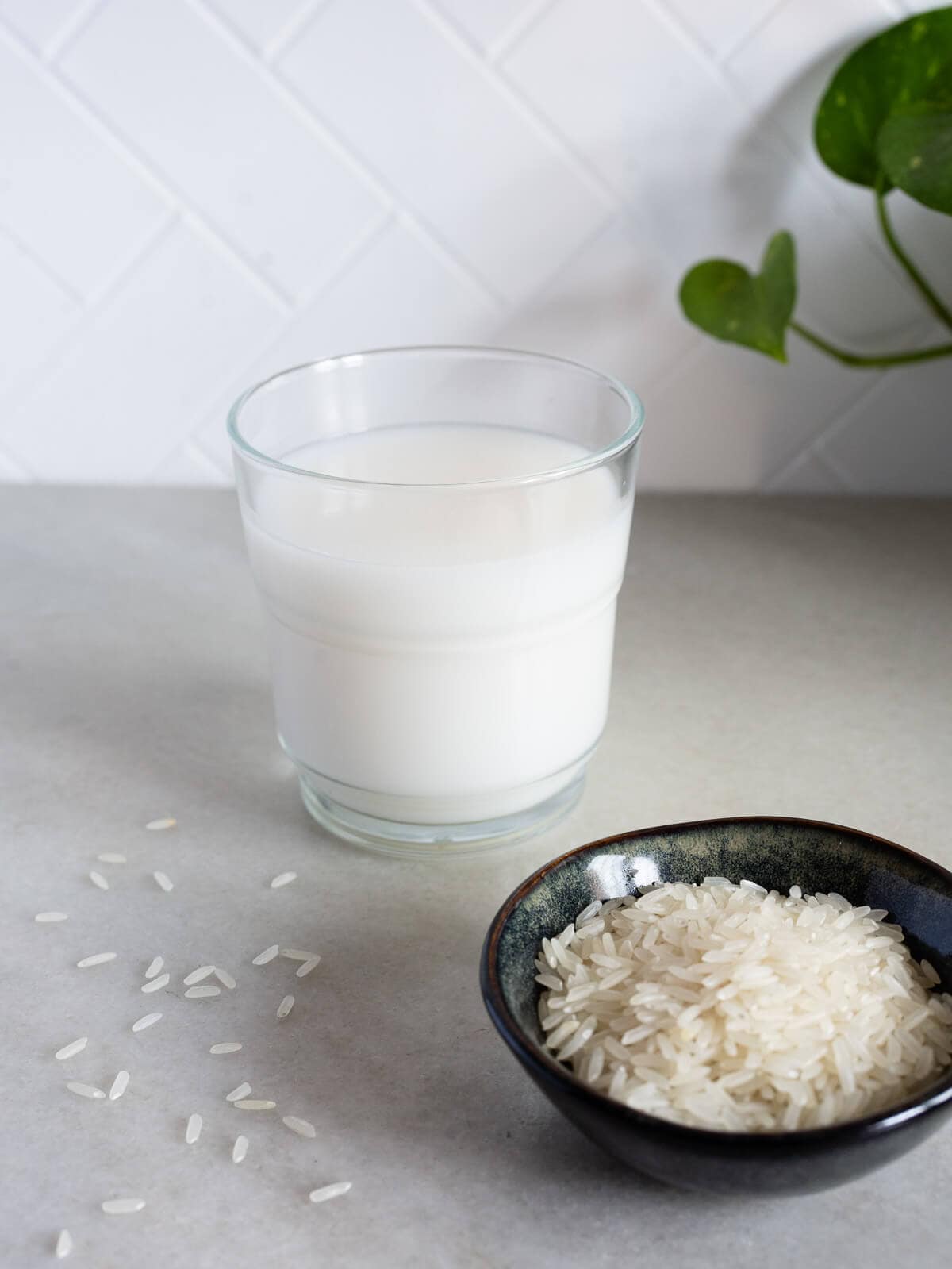
Rice milk is the lightest among the milk options, with a watery consistency and a sweet undertone. It's an excellent choice for those who prefer a less dense smoothie. It complements citrus fruits like oranges and even tropical fruits like lychee.
Rice milk has a higher carbohydrate content than cow's milk and soy milk, yet (non-dairy milk) it's lower in protein and calcium. Due to its watery consistency, rice milk tends to give your smoothies a lighter texture!
Use rice milk for fruit or veggie-based smoothie recipes, where you just need a little bit of creaminess and a neutral flavor, like our smoothie for constipation, watermelon smoothie, or mango smoothie.
7. Seed Milk: A Different Twist
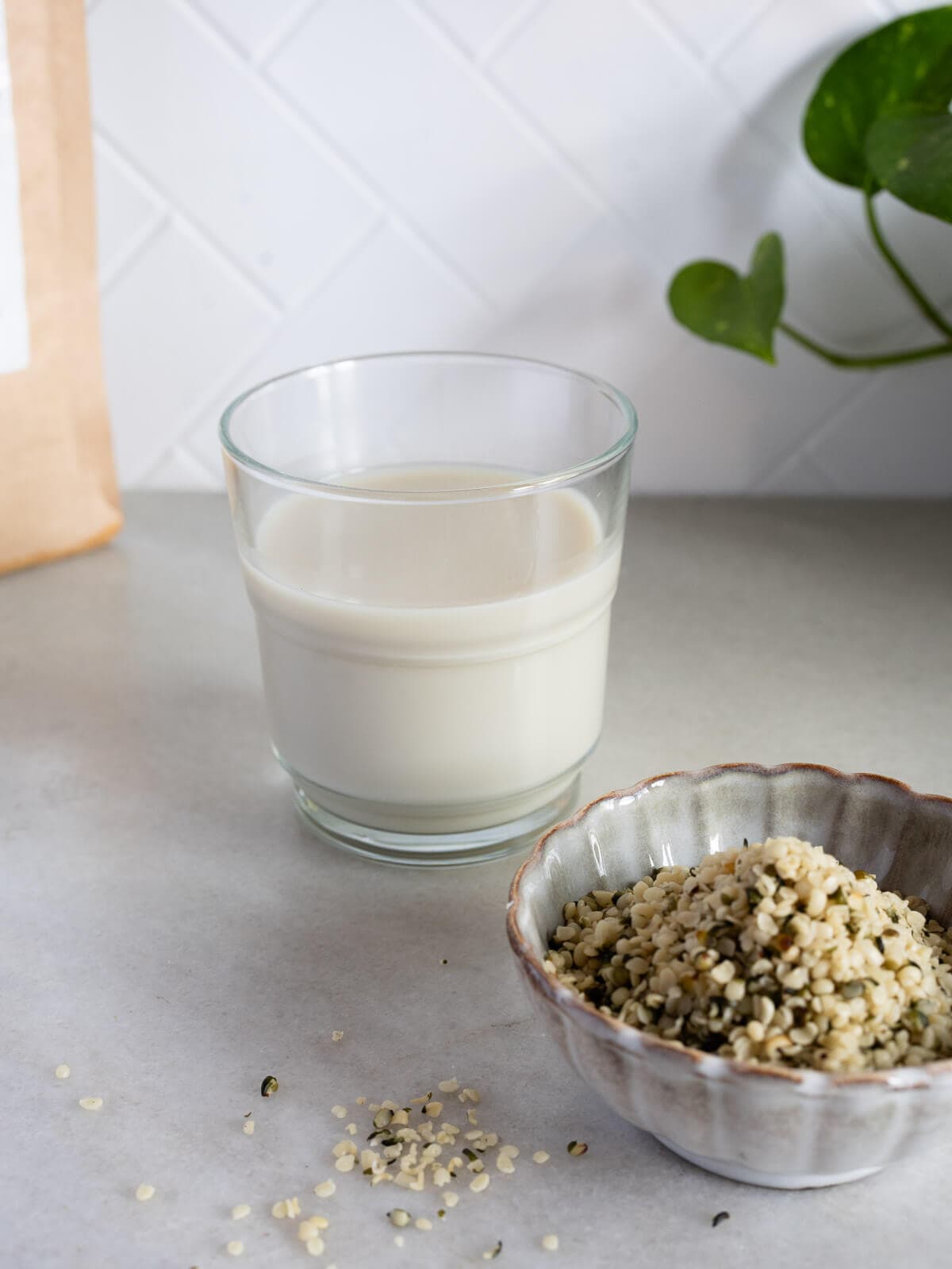
Seed milk, like flax milk or hemp, have a slightly earthy flavor. They're generally thinner but bring along a unique taste that can elevate certain smoothie combinations. They pair well with dark leafy greens and fruits like blueberries or raspberries.
Use seed milk with blueberry avocado smoothie and leafy greens detox smoothie.
8. Cashew Milk: Creamy Indulgence
Made by blending cashews with water, this milk has a creamy texture and is often used in vegan desserts due to its rich consistency. Also, it is the lowest calorie milk alternative.
Cashew milk is known for its ultra-creamy texture, making it a favorite for dessert-like smoothies. Its subtle nutty flavor complements rich add-ins like chocolate, vanilla, or even caramel.
Use cashew milk for smoothies, where creaminess is imperative, like our avocado and greens or creamy matcha smoothie.
9. Hazelnut Milk: Distinctly Nutty
Produced similarly to almond and cashew milk, hazelnut milk offers a distinct nutty flavor, making it a favorite for those looking to add a unique taste to their smoothies.
Hazelnut milk offers a pronounced nutty flavor, making it a standout choice for those looking to add a unique taste to their smoothies. It's especially delightful with chocolate or cocoa-based smoothies, reminiscent of a certain beloved hazelnut spread.
Read on: we love using this milk as a variation for our oat and peanut butter smoothie
10. Walnut Milk: easy-peasy
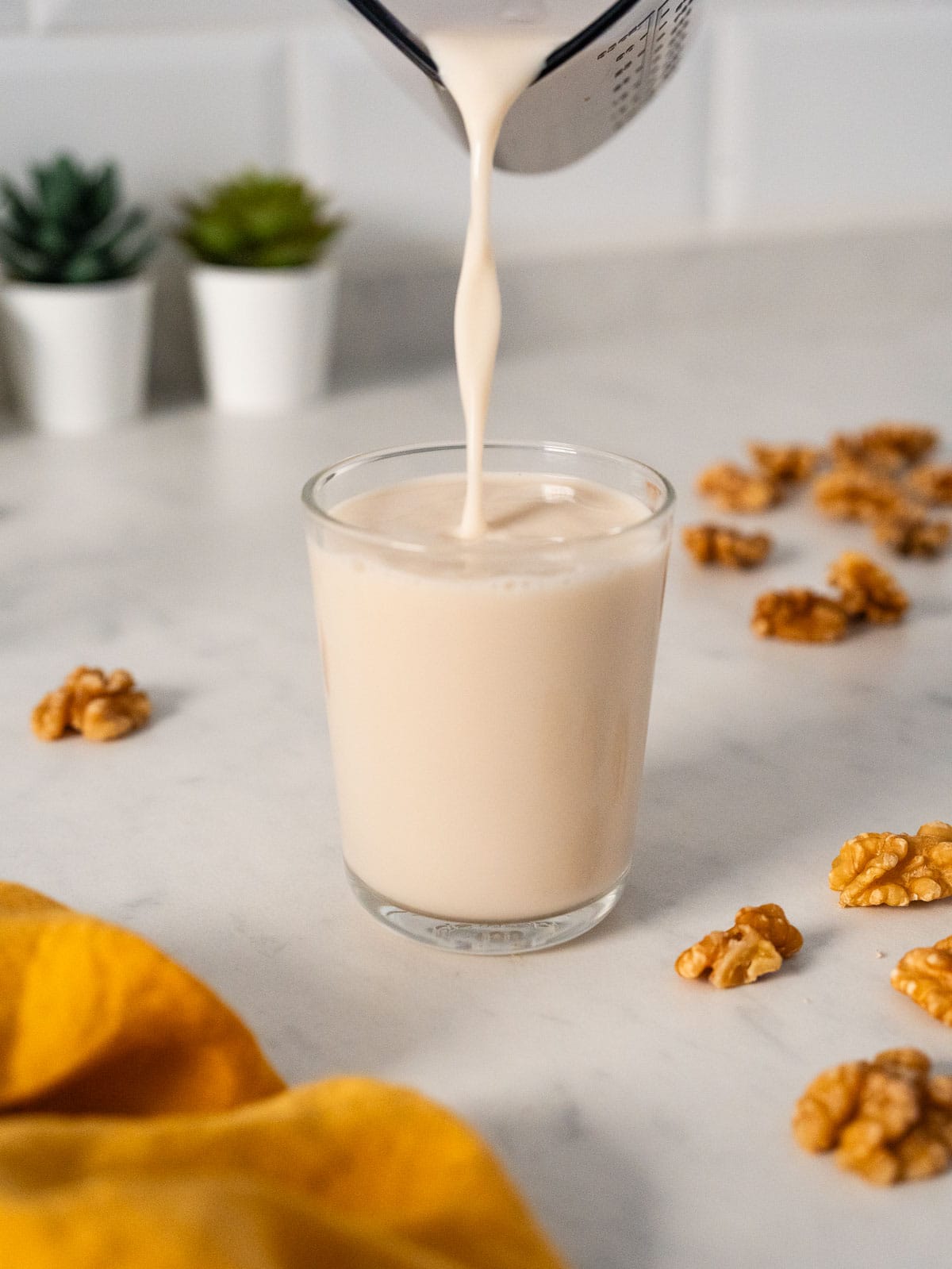
Made by blending walnuts with water, this milk boasts a slightly earthy and nutty flavor. Its smooth consistency makes it a delightful addition to various dishes, not just smoothies. Also, homemade walnut milk is packed with omega-3 fatty acids, which benefit heart health.
Walnut milk has a unique taste profile sets it apart from other nut milks. Its deep, nutty undertones can elevate the flavors of your smoothie, making it taste richer and more indulgent.
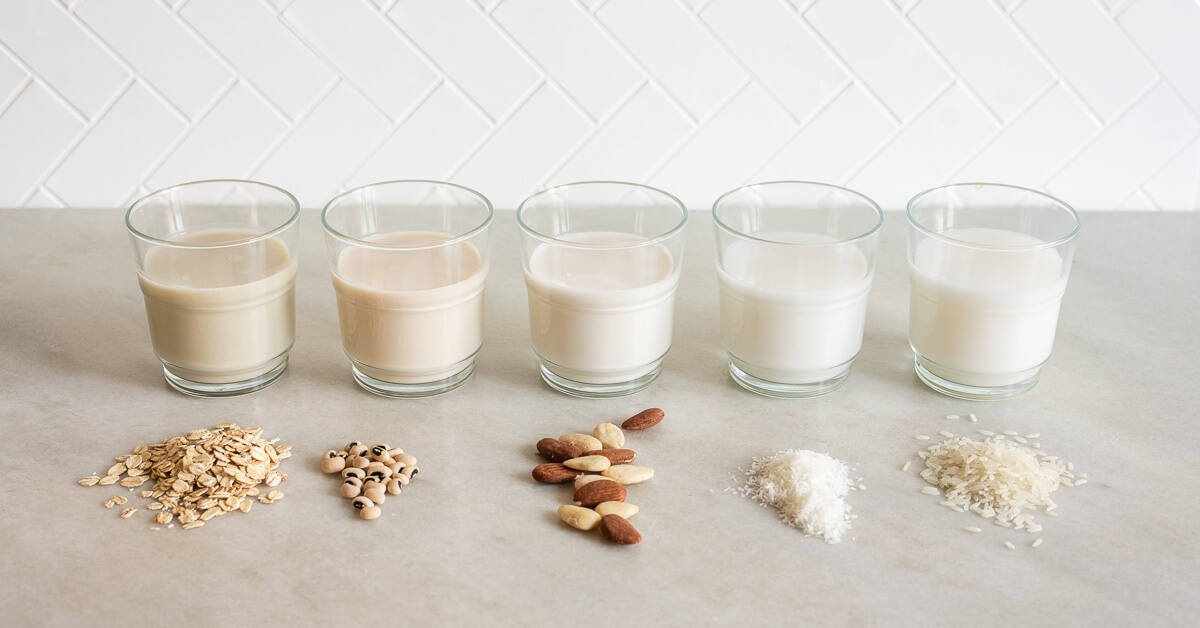
Other milk alternatives
Several milk alternatives like hemp, quinoa, and pea milk are excellent choices for lactose-intolerant individuals.
The ideal plant-based milk for smoothies largely depends on your recipe. Creamier alternatives such as cashew, oat, and almond milk are recommended for rich chocolate or peanut butter smoothies. Say hi to creamy smoothies!
On the other hand, for predominantly fruit smoothies, consider opting for lighter options like rice milk, hemp milk, seed-based, or light coconut milk.
Remember, while the type of milk can influence the taste and texture of your smoothie, the most important thing is to choose one that aligns with your values and meets your nutritional needs. So, grab your blender, pick your favorite milk, and embark on a delightful smoothie adventure. Happy blending!
As the lead content writer and recipe developer at Our Plant-Based World, he combines his passion for health and sustainability with a Plant-Based Nutrition Certification to create accessible, delicious vegan recipes. His expertise in plant-based cooking supports the blog's mission of fostering a healthier, environmentally conscious lifestyle through simple and seasonal dishes. His commitment to making vegan cooking enjoyable and inclusive for everyone shines in each recipe and article.

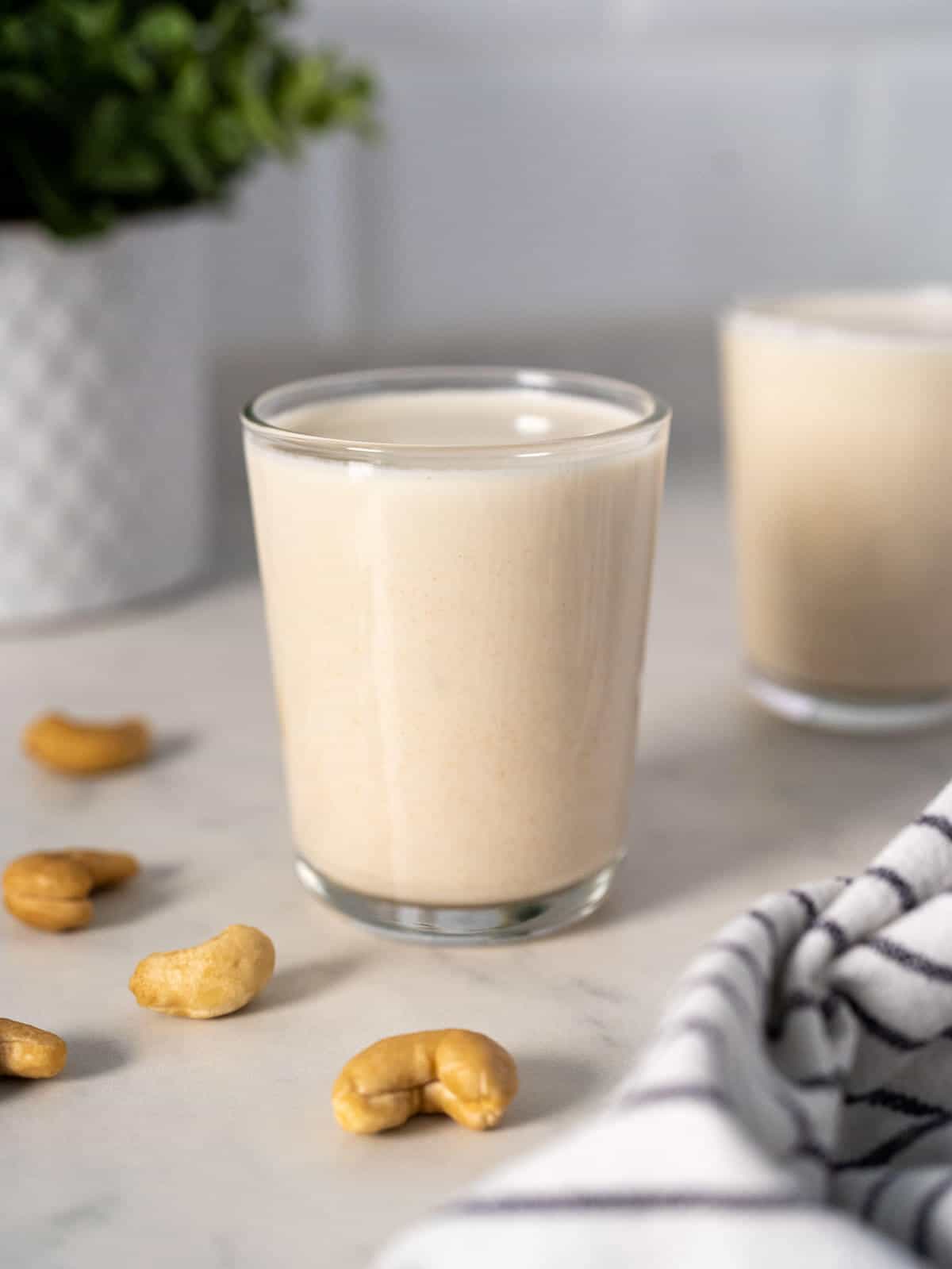
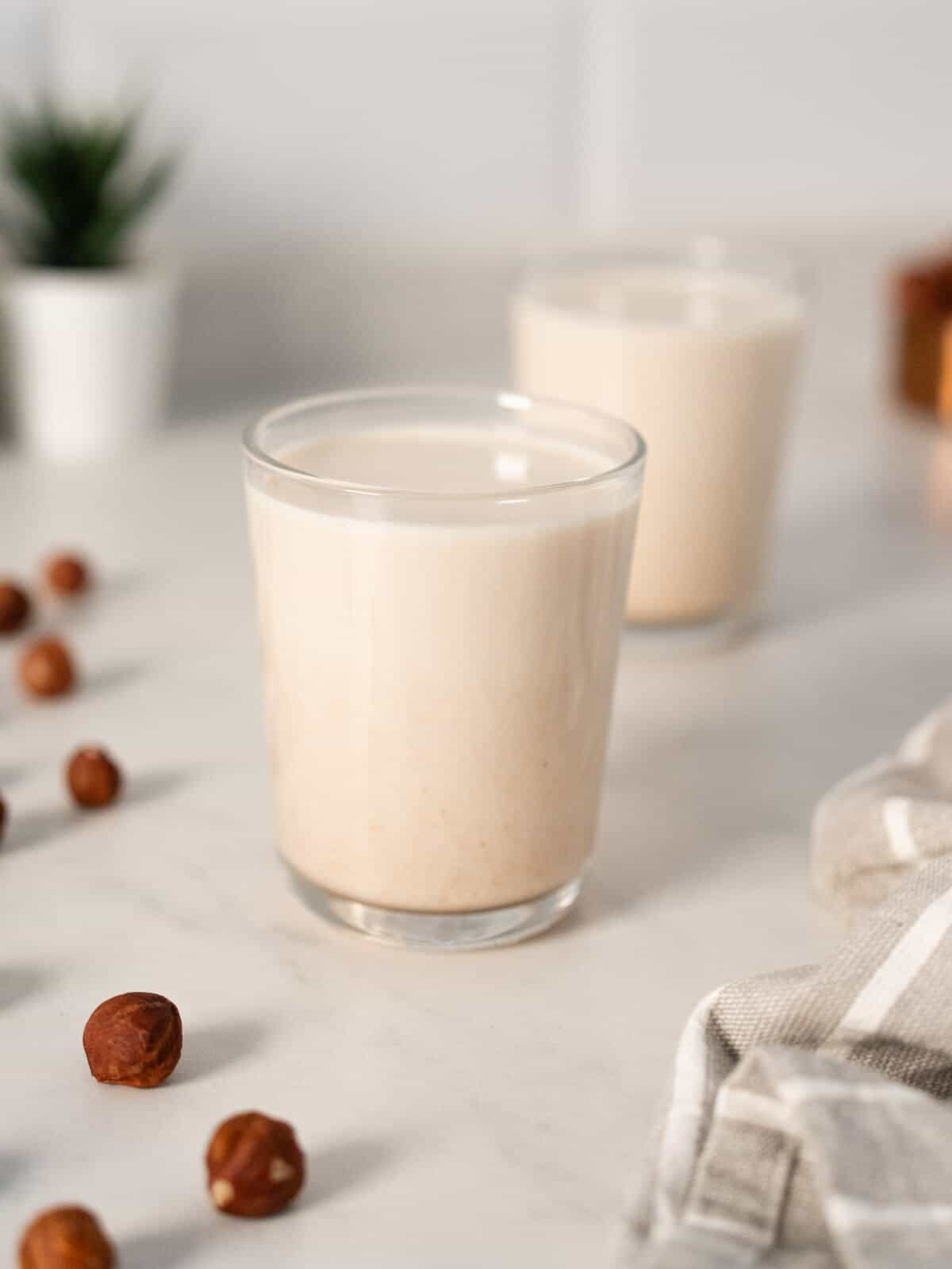

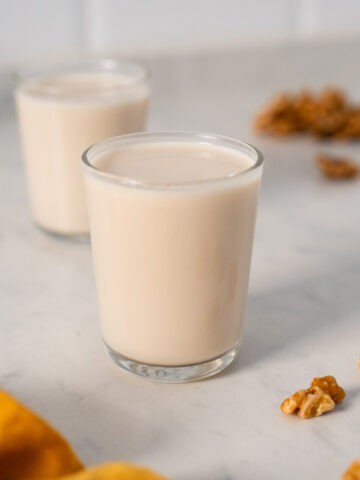
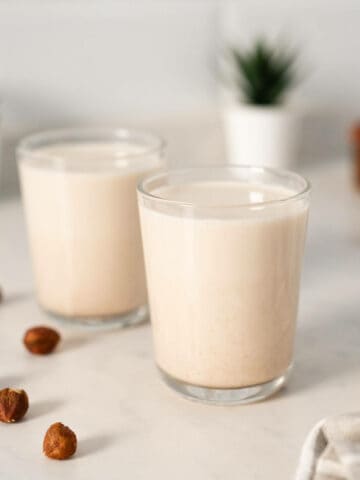
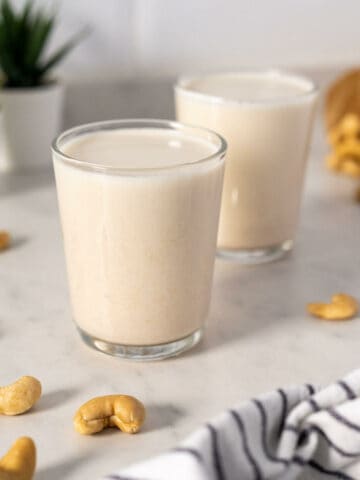
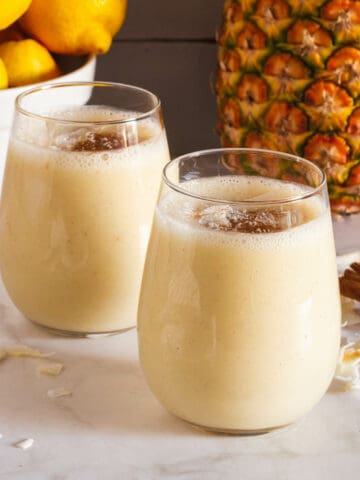
Comments
No Comments